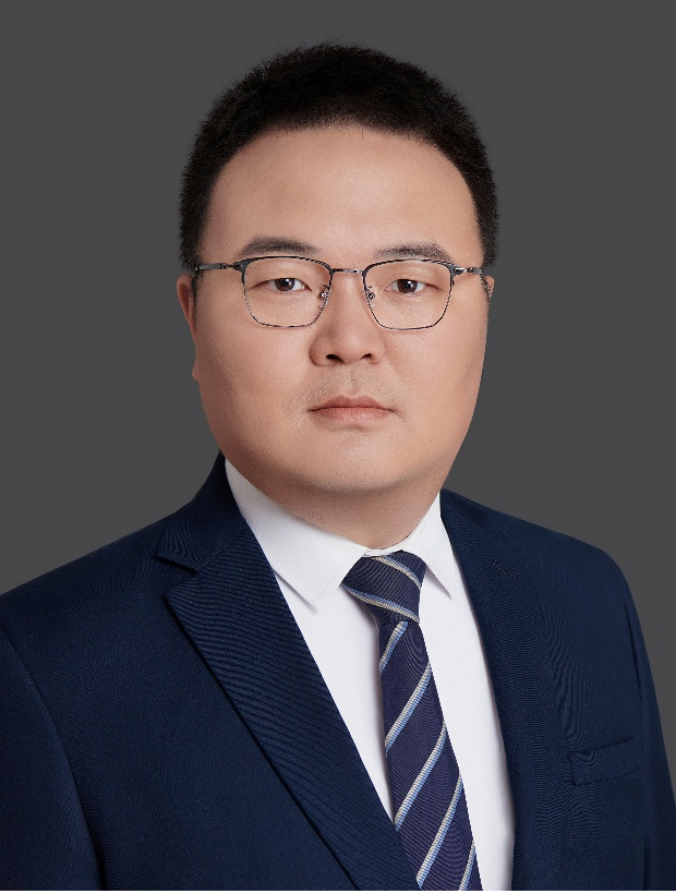Department of Cell Biology
Libin Wang

Libin Wang, Assistant Professor
Contact Information
Research Focus
1. Development and medical application of new polygenic and chromosomal editing technologies;
2. Mechanism analysis of chromosomal diseases combined with innovative stem cell-based approaches;
3. Humanization of mammalian organisms based on synthetic biology.
Biography
Libin Wang is a Principal Investigator and Group Leader in the Department of Cell Biology, as well as a Principal Investigator at the National Key Laboratory for Women’s Fertility Promotion and the Beijing Key Laboratory of Stem Cell Regenerative Medicine. Dr. Wang received his Ph.D. and postdoctoral training at the Institute of Zoology, Chinese Academy of Sciences, under the mentorship of renowned stem cell and developmental biologist Academician Qi Zhou. He joined the School of Basic Medical Sciences in 2023 and has long been engaged in innovative stem cell-driven research into the mechanisms of complex genetic diseases. His research findings, as first author (including co-first author), have been published in prestigious journals such as Science (2022), Cell Stem Cell (2025, 2020, 2018). Among these, his work on achieving precise fusion of entire mammalian chromosomes for the first time ( Science , 2022) was selected as one of China’s Top 10 Advances in Life Sciences. His research on realizing same-sex reproduction in mammals for the first time ( Cell Stem Cell , 2018) was recognized as one of the world’s seven top technological breakthroughs. Dr. Wang has been awarded grants such as the National Natural Science Foundation of China General Program and projects under the National Key R&D Program of China. He currently serves as a committee member of the Gene Engineering and Cell Engineering Pharmaceutical Professional Committee of the China Medicinal Biotechnology Association, and as an editorial board member for journals including Cell Proliferation and Life Medicine .
Representative Work
1. Wang Li-Bin, Li Zhi-Kun, Wang Le-Yun, Xu Kai, Ji Tian-Tian, Mao Yi-Huan, Ma Si-Nan, Liu Tao, Tu Cheng-Fang, Zhao Qian, Fan Xu-Ning, Liu Chao, Wang Li-Ying, Shu You-Jia, Yang Ning, Zhou Qi*, Li Wei* ; A sustainable mouse karyotype created by programmed chromosome fusion; Science; 2022, 377 :967-975.
2. Zhi-Kun Li, Li-Bin Wang, Le-Yun Wang , Xue-Han Sun, Ze-Hui Ren, Si-Nan Ma, Yu-Long Zhao, Chao Liu, Gui-Hai Feng, Tao Liu, Tian-Shi Pan, Qing-Tong Shan, Kai Xu, Guan-Zheng Luo*, Qi Zhou*, Wei Li*. Adult bi-paternal offspring generated through direct modification of imprinted genes in mammals; Cell Stem Cell;2025, 32; 361-374.
3. Wang Le-Yun, Li Zhi-Kun, Wang Li-Bin, Liu Chao, Sun Xue-Han, Feng Gui-Hai, Wang Jia-Qiang, Li Yu-Fei, Qiao Lian-Yong, Nie Hu, Jiang Li-Yuan, Sun Hao, Xie Ya-Li, Ma Si-Nan, Wan Hai-Feng, Lu Fa-Long*, Li Wei*, Zhou Qi*; Overcoming Intrinsic H3K27me3 Imprinting Barriers Improves Postimplantation Development after Somatic Cell Nuclear Transfer; Cell Stem Cell; 2020, 27 :315-325 e315.
4. Li Zhi-Kun, Wang Le-Yun, Wang Li-Bin, Feng Gui-Hai, Yuan Xue-Wei, Liu Chao, Xu Kai, Li Yu-Huan, Wan Hai-Feng, Zhang Ying, Li Yu-Fei, Li Xin, Li Wei*, Zhou Qi*, Hu Bao-Yang*; Generation of Bimaternal and Bipaternal Mice from Hypomethylated Haploid ESCs with Imprinting Region Deletions; Cell Stem Cell; 2018, 23 :665-676 e664.
5. Libin Wang, Jiani Cao, Yukai Wang, Tianshu Lan, Lei Liu, Weixu Wang, Ning Jin, Jiaqi Gong, Chao Zhang, Fei Teng, Guoliang Yan, Chun Li, Jiali Li, Haifeng Wan, Baoyang Hu, Wei Li, Xiaoyang Zhao, Zhongquan Qi*, Tongbiao Zhao*, Qi Zhou*. Immunogenicity and functional evaluation of iPSC-derived organs for transplantation. Cell Discovery; 2015, 1.

